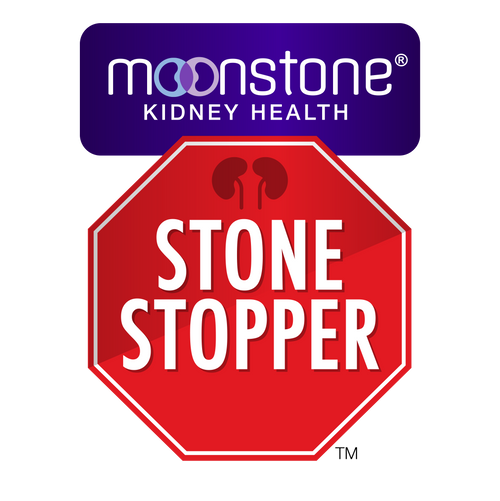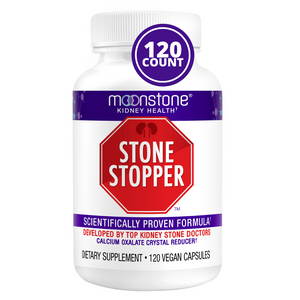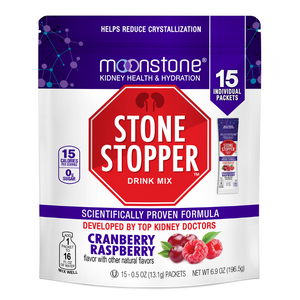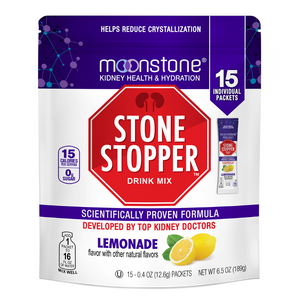Kidney stones are a common medical condition affecting hundreds of millions of people all over the world. These small, hard mineral deposits can cause severe pain and discomfort. In some cases, even kidney damage has occured. There are various kidney stone treatment options available like natural remedies & medical interventions. So, it's important to not only understand your options but to seek guidance from a medical specialist who specializes in kidney stones (nephrologists).
Understanding Your Body
Before we dive into the different kidney stone treatment options, let's first understand what kidney stones are, their causes, and symptoms.
Kidneys filter waste products from the blood and excrete them in the urine. When minerals such as calcium, oxalates, and uric acid crystallize in the urinary tract, kidney stones are born. They vary in size, shape, and location in the body. Some are passed naturally without even knowing, while more severe cases may require medical intervention.
Symptoms and Risk Factors
Symptoms can range from person to person. The most common include severe pain in the back, sides, lower abdomen, or groin, as well as nausea, vomiting, and blood in urine. It's important to contact your doctor immediately if any symptoms arise.
Risk factors for kidney stones vary widely, from genetics to dehydration, and from certain medical conditions (e.g.: hyperparathyroidism, gout, obesity) to diets high in sodium.
Natural Remedies for Kidney Stones:
There are several natural remedies that can help to prevent and treat kidney stones:
- Drink Hydrating Liquids: Staying hydrated is crucial to flushing out the kidneys and preventing the formation of kidney stones. Read our blog post on why dehydration has a strong link to kidney stones and tips you can take to prevent it.
- Lemon & Pomegranate Juices: Lemon in water boosts citrate levels, curbing stone formation. Pomegranate juice enhances kidney function, lowers acidity, reduces stone risk.
- Apple Cider Vinegar: Similarly, adding 2 tablespoons of apple cider vinegar to 6-8 ounces of water can help dissolve kidney stones. You can also substitute other vinegars for apple cider vinegar. It's important to note, however, that any more than 2 tablespoons a day is not recommended. This can lead to tooth enamel decay, acid reflux, and even issues with blood sugar. Lastly, it can negatively interact with some medications.
The list goes on..
- Celery & Wheatgrass Juices: Similarly, consuming celery and/or celery juice may help break down kidney stones. Wheatgrass juice contains vital nutrients to cleanse the kidneys. It can also increase urine flow to help pass kidney stones more easily.
- Dandelion: This flower has also been shown to help eliminate waste, increase urine output. One study even showed it could help prevent formation of kidney stones. Having dandelion root tea can be a great herbal tea to consider.
- Dietary Changes: Making dietary changes such as reducing salt intake, increasing fiber intake, consuming calcium-rich foods, and reducing animal protein can help to prevent the formation of kidney stones. Also avoid high oxalate foods (such as spinach and chocolate), which you can read more about here. While it may be impossible to cut certain food items out, combining 'good' and 'bad' items can still help prevent these minerals from binding to form stones.
- Herbal Supplements: It's important to note that the Food and Drug Administration (FDA) don't regulate herbal supplements, so even if some herbs may be effective it's important to research any before taking them. Some herbal supplements, such as Chanca Piedra, have been reported by some to help prevent and treat kidney stones.
- Vitamin B6 & Magnesium: Studies are starting to show that vitamin B6 and potassium magnesium citrate may prevent the formation and recurrence of kidney stones. Other vitamins and antioxidants like vitamin D and CoQ10 could also help.
- Physical Activity: Studies have shown that regular exercise can not only keep you at a healthy weight, it can aid in your body in moving along waste and ridding it.
Before making any changes to diet, physical activity or taking any new supplements, it's important to consult with your physician.
Medical Interventions for Kidney Stones:
In certain instances, medical interventions may be necessary to treat kidney stones. Treatment will depend on the size, location, and type of stone, as well as the overall health of the patient. These include:
- Extracorporeal Shock Wave Lithotripsy (ESWL): This non-invasive procedure uses shock waves to break up kidney stones into smaller pieces, which are then passed out of the body through urine.
- Ureteroscopy: This minimally-invasive procedure involves using a small, flexible tube with a camera on the end to remove kidney stones from the ureter or kidney.
- Percutaneous Nephrolithotomy (PCNL): This surgical procedure involves making a small incision in the back and removing kidney stones using a small tube. This is mainly used for larger stones or any stones that are difficult to remove by other methods.
- Open Surgery: In rare cases, open surgery may be necessary to remove large, stubborn kidney stones.
It's important to discuss any benefits and risks before any of these potential surgeries with your physician.
Preventing Kidney Stones
Kidney stones can be painful and debilitating, but with the right treatment they can be managed effectively. It's important to remember, however, that prevention is always better than treatment. Maintaining a healthy lifestyle is crucial to stopping kidney stones from forming in the first place. So, follow our natural kidney stone treatment options to help. If you're experiencing any symptoms outlined above, however, consult your doctor immediately for proper diagnosis and treatment.






5 comments
All thanks to itua healer for the permanent cure he rendered to me , I told him I will keep Sharing his good work because he has really done a great work in my love and I know he is a god sent , so please don’t hesitate to contact him now so that you can also be a living testimony just like me . Here are his contact informations ! Email : ituahealer@gmail.com WhatsApp: +2348150223558 Website: https://ituahealer.wixsite.com/my-site so contact him now and thank me later !
Using herbal natural remedy was what got me tested negative to HSV 2 after being diagnosed for years. I have spent so much funds on medications like acyclovir (Zovirax), Famciclovir (Famvir), and Valacyclovir (Valtrex). But it was all a waste of time and my symptoms got worse. To me It is very bad what Big pharma are doing, It’s also crucial to learn as much as you can about your diagnosis. Seek options reach out to👇👇👇👇 WORLD REHABILITATE CLINIC